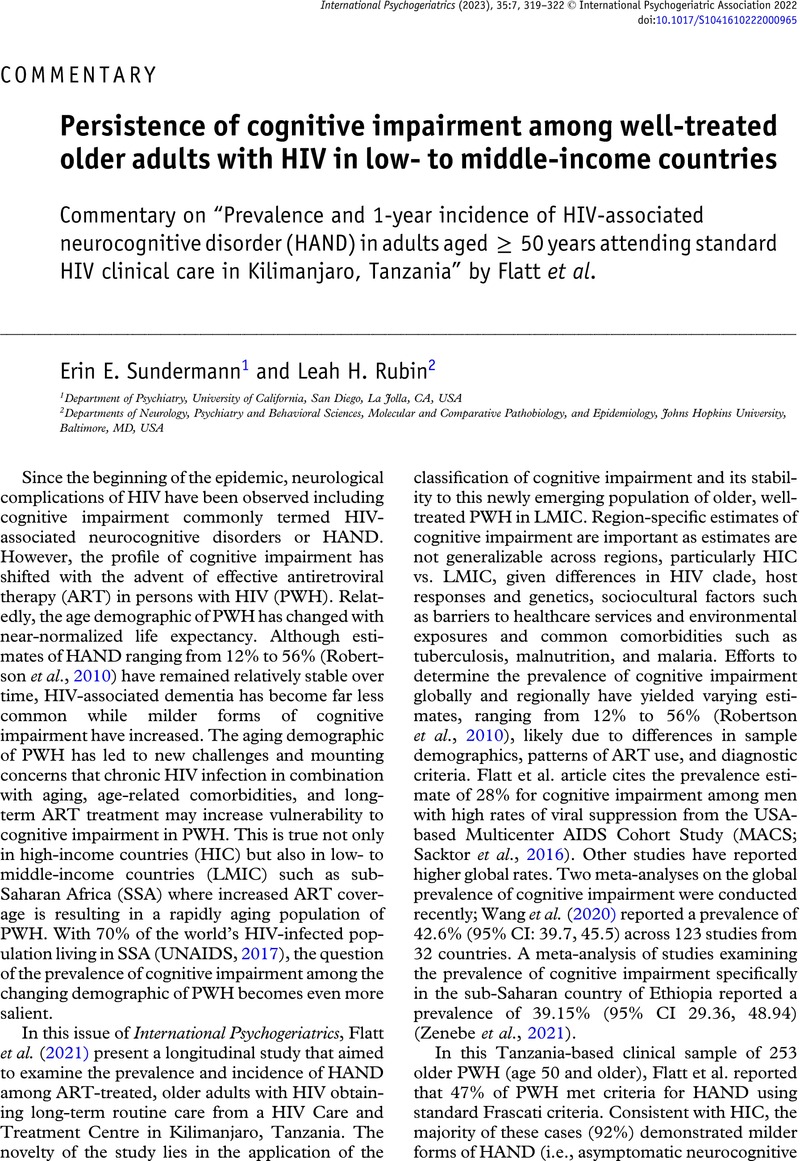No CrossRef data available.
Commentary on “Prevalence and 1-year incidence of HIV-associated neurocognitive disorder (HAND) in adults aged ≥ 50 years attending standard HIV clinical care in Kilimanjaro, Tanzania” by Flatt et al.
Published online by Cambridge University Press: 04 October 2022
